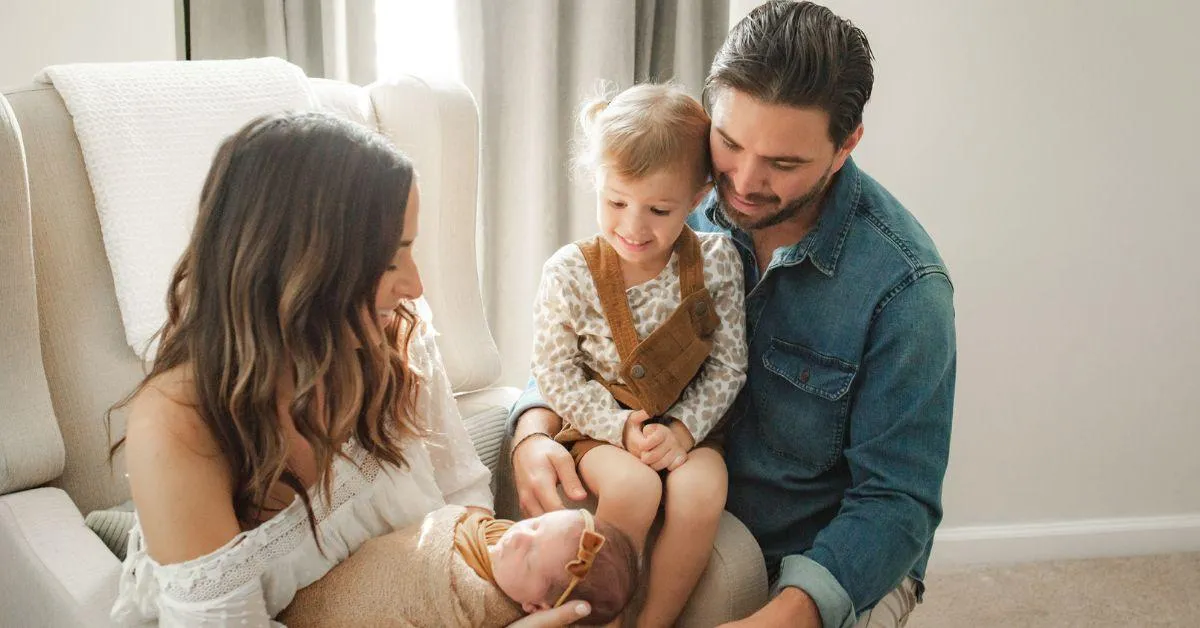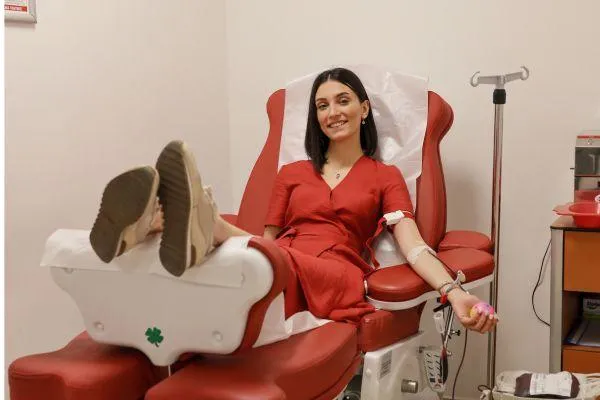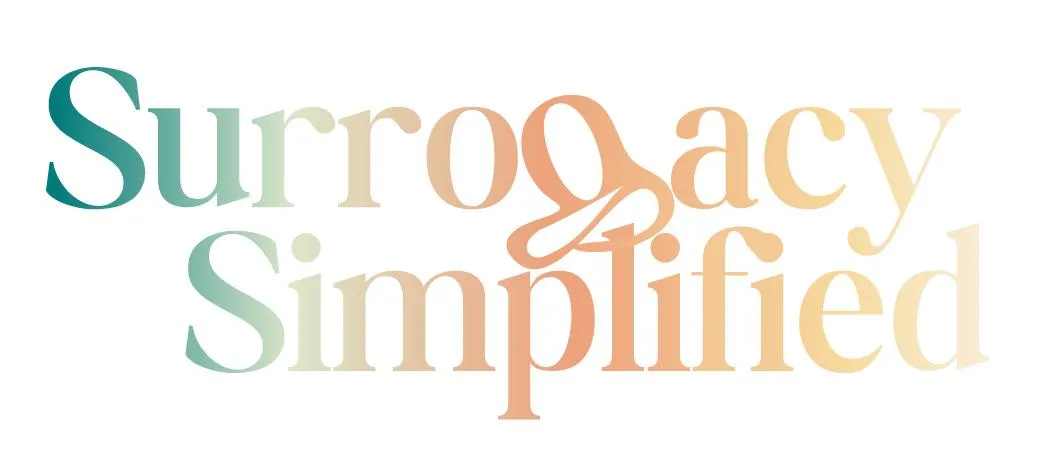Why Choose Surrogacy Simplified?

Efficiently Save Your Time and Money By Avoiding Common Surrogacy Pitfalls
We stay up-to-date with the latest industry trends, ensuring you receive the highest standard of care and guidance. Having gone through surrogacy firsthand, we've experienced many pitfalls, costing us a significant amount time and money. We're here to guide you from making the same mistakes.

Unparalleled Connections for Premium Care and Savings
When you choose to work with us, we establish connections with top-tier fertility clinics, lawyers, psychologists, financial advisors, and more. Our extensive network of professionals allows us to deliver exceptional care while maximizing your savings. Rest assured that we have cultivated strong relationships with each team member, ensuring both cost-effectiveness and the highest quality of service.

Personalized Support for Your Journey to Parenthood
We take the time to understand your unique circumstances, preferences, and goals, tailoring our services to meet your specific needs. When working with us, you have one main point of contact throughout your journey.
We genuinely care about your journey to parenthood. Our team is committed to providing compassionate support, ensuring you feel heard, understood and fully supported throughout the entire process. When working with us, we support and take care of everything.

Confidentiality and Privacy: Our Top Priority
We prioritize your privacy and confidentiality. Your personal information and journey details are handled with the utmost discretion and professionalism.
Complimentary Resources

Known vs Anonymous Egg Donation: Which is Right for Your Surrogacy Journey?
Starting your surrogacy journey brings many important decisions. For those who are growing their family using donor eggs, one of the most significant choices you'll face is whether to work with a known or anonymous egg donor. This decision can have lasting implications not just for you as intended parents, but also for your future child and their sense of identity. This resource is meant to support you in making an informed choice that aligns with your personal beliefs, comfort level, and the best interest of any potential donor-conceived children.
Understanding the Terms
Before exploring the differences, it’s helpful to clarify what “known” and “anonymous” donation actually mean. A known donor is someone whose identity is shared with the intended parents and, in many cases, the child. This could be a friend, family member, or a donor found through a program who agrees to maintain some level of contact. The degree of contact can vary widely and depends on the preferences of the parties involved, ranging from periodic updates or correspondence to a more involved, ongoing relationship.
Anonymous donation, in contrast, has traditionally meant that the donor’s identity remains undisclosed to the intended parents and child. However, with the rise of at-home DNA testing and social media, true anonymity is becoming harder to maintain. At Cofertility, a company redefining egg donation through a more ethical and human-centered approach, we walk intended parents through the realities of anonymous donation. We educate them on how evolving technology and shifting norms impact long-term privacy and connection, helping them make informed choices that align with their values and future family dynamics.
Read more: Understanding the Language of Egg Donation Disclosure: Anonymous, Known, Disclosed, Open ID
Why Some Families Choose a Known Donor
There are several reasons why intended parents might choose a known donor:
Connection and transparency – A known donor arrangement allows for direct communication, giving your child a clearer understanding of their genetic background from an early age.
Medical history access – Maintaining contact with the donor can make it easier to get updates on medical history if health concerns arise.
Identity development – Research suggests that children benefit from having access to their genetic origins, which can help them develop a strong sense of self.
Potential for an extended family – Some families find that their donor becomes a meaningful presence in their child’s life, offering an additional layer of love and support.
Why Others Prefer Anonymous Donation
For some intended parents, choosing anonymous donation feels like the right fit. Here are some of the potential reasons:
Clear boundaries – Some parents prefer privacy and don’t want to navigate an ongoing relationship with the donor.
Emotional simplicity – Without a connection to the donor, parents can focus solely on building their family without external complexities.
Thorough donor profiles – Many anonymous donation programs provide detailed medical histories, childhood photos, and personal profiles, giving parents valuable insights while maintaining privacy.
The Changing Landscape of Anonymity
While anonymous donation has long been an option, the rise of direct-to-consumer genetic testing has reshaped the conversation. Even if a donor’s identity is initially kept private, children born from egg donation may still be able to uncover their genetic connections later in life. In response, many programs now offer open-ID donation, which gives donor-conceived individuals the option to reach out to their donor once they’re adults.
Read more about why we don’t believe in anonymous egg donation.
Considering Your Child’s Perspective
When making this decision, it's essential to consider how it might affect your child's emotional well-being and sense of identity. Research suggests that children who have access to information about their genetic origins often feel more secure in their identity. However, this doesn't necessarily mean that known donation is always the better choice.
Children born through anonymous donation can still develop healthy identities when parents are open about their origins from an early age. The key lies not in whether the donor is known or anonymous, but in how parents approach the topic of donor conception with their child. We recognize that every family’s needs are unique, which is why at Cofertility we provide resources to help intended parents navigate these conversations with care and confidence.
Regardless of your disclosure choice, at Cofertility we require all donors to update us about relevant changes in their medical history. This information is shared with recipient families in both disclosed and undisclosed arrangements.
Questions to Ask Yourself
As you consider your options, here are some questions to reflect on:
Do I want my child to have the option of a relationship with their donor?
Some families value the opportunity for their child to connect with their donor— whether to ask questions, understand their genetic background, or develop an extended sense of family. Others prefer to keep family dynamics simpler and focus on the parent-child bond without additional connections.How important is access to ongoing medical history?
While donors provide a medical history at the time of donation, health conditions can change over time. A known donor or open-ID arrangement may allow for better access to updated medical information, which could be crucial if your child ever faces a medical concern that could benefit from genetic insights.How do I feel about the possibility of my child finding their donor in the future?
With genetic testing and social media, true anonymity is increasingly difficult to maintain. If you choose an anonymous donor, consider how you would feel if your child sought out and potentially found their donor later in life. Would you be open to that, or does it raise concerns?What level of privacy or openness aligns best with my family’s values?
Think about how open you are to sharing your child’s donor origins with family, friends, and even your child. Transparency can be empowering, but every family’s comfort level is different.How might my cultural or personal background influence this decision?
Different cultures have unique perspectives on egg donation, biological connections, and family structure. Consider how your background, values, or beliefs may impact your decision and the conversations you’ll have with your child about their origins.
Ultimately, there’s no right or wrong answer—only what feels best for your family. Taking the time to reflect on these questions can help ensure that your choice aligns with your values and prioritizes your child’s well-being. If you’re unsure about which option aligns best with your values, seeking guidance from a professional specializing in third-party reproduction can be helpful. At Cofertility, your Member Advocate is there to guide you every step of the way, providing resources and support as you navigate these decisions.
Final Thoughts
There’s no one-size-fits-all answer when it comes to known vs. anonymous donation. What matters most is making a choice that feels right for your family and prioritizes your child’s well-being. If you’re feeling unsure, consider speaking with a mental health professional who specializes in third-party reproduction. No matter which path you take, openness, honesty, and love will always be the foundation of your child’s story.
At Cofertility, we strive to connect intended parents with research and experts, aiding in informed decision-making, and respecting cultural considerations. Our team is here to guide you, ensuring a process that honors all parties involved, including the donor, the intended parents, and most importantly, the donor-conceived children.
Bringing your dream of
parenthood to life;
one step at a time.
Our Team

John Doe

John Doe

John Doe

John Doe
Client Testimonials
Some love words from clients

Lorem ipsum dolor sit amet, consectetur adipiscing elit. Fusce elementummi vitae risus luctus rhoncus. Morbi porttitor diam tincidunt leo vestibulum, tempus suscipit orci hendrerit. Morbi id tincidunt dui.

Jane Doe
Founder/CEO, XYZ Inc.

Lorem ipsum dolor sit amet, consectetur adipiscing elit. Fusce elementummi vitae risus luctus rhoncus. Morbi porttitor diam tincidunt leo vestibulum, tempus suscipit orci hendrerit. Morbi id tincidunt dui.

Jane Doe
Founder/CEO, XYZ Inc.


